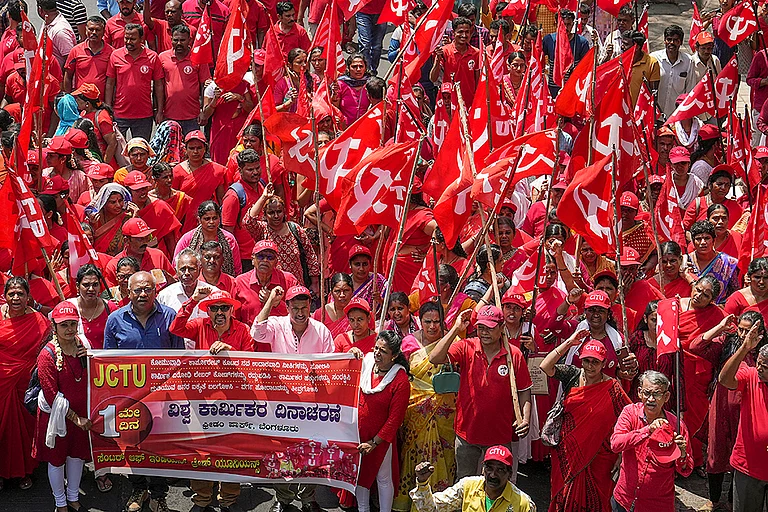International Labour Day, which also carries the name of 'May Day', is observed across the world on May 1st each year as a tribute to the working class individuals whose relentless dedication, effort and hard-work play a pivotal role in shaping societies, economies and communities globally.
International Labour Day 2025: Fight For Workers' Rights, Haymarket Affair | History, Significance And More
May Day specifically recognises the working class people's arduous struggles and triumphs in securing fair wages and better working conditions while emphasising that the workers associated with the unskilled or semi-skilled manual industrial work should also be empowered to understand their rights.
Looking back into history, this day specifically recognises the working class people's arduous struggles and triumphs in securing fair wages and better working conditions. Moreover, the day also emphasises that the workers associated with the unskilled or semi-skilled manual industrial work should also be empowered to understand their rights.
Origin Of International Labour Day
The origin of International Labour Day dates back to the late 19th century when the United States witnessed a widespread labour movement by the National Labour Union (NLU). Back in 1866, May 1st was selected as the date to honour a nationwide 8-hour workday strike.
However, the historic event took a tragic turn and culminated in the unfortunate and regrettable Haymarket Affair in Chicago. Workers were protesting for an eight-hour workday in Haymarket Square on that day when a bomb was thrown into a meeting of the radical unionists who raised their voice against police brutality. The violence claimed lives of seven police officers and at least four demonstrators.
In India, Labour Day, which is marked on May 1, was first observed in Chennai in 1923. The day underscores the importance of upholding social justice and promoting the workers' rights.
Why Is It Significant?
May Day, which is also known as International Workers' Day, represents social justice, solidarity, and the fight for workers' rights. The day reminds us of the everyday hardships that the workers face across the globe.
The fundamental purpose of observing the day is to raise awareness of the workers' rights, put an end to unethical practices like exploitation, ensure equitable salaries, and improved working conditions.
International Labour Day also commemorates the workers' movement's historic triumphs and progress in ensuring workers' rights, welfare, and dignity.
How Is The Day Celebrated?
International Labour Day is celebrated across nations with millions of people enthusiastically taking part in marches, rallies, and other events to honour the workers. Several seminars and events are planned as well on this day to highlight their accomplishments and contributions.
In nations like China, Tanzania, Zimbabwe, South Africa, and Tunisia, May 1st is a public holiday. Many Indian states, including Maharashtra, Tamil Nadu, and West Bengal, observe Labour Day as a public holiday.
Depending on the region, banks, stock markets, government buildings, schools, and public transportation, as well as postal services, are anticipated to stay closed.


